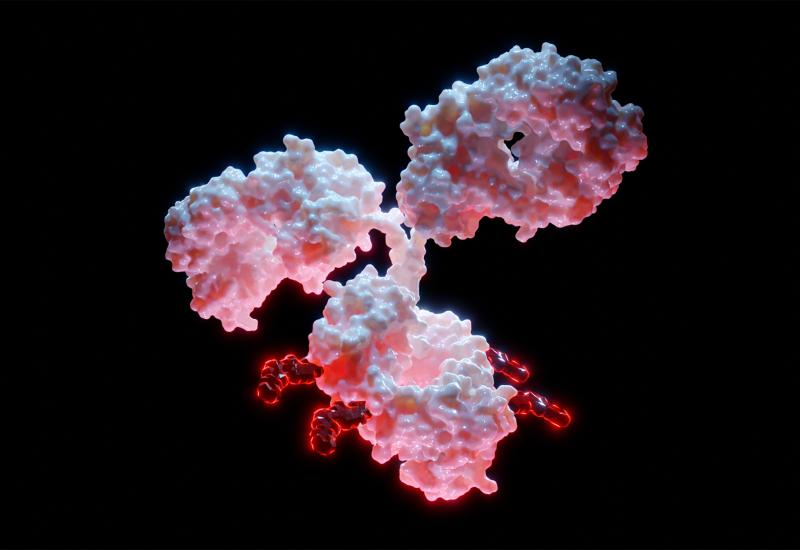
Nanjing Leads tests investor appetite for Lag3
But BeOne canned its alcestobart deal in May.
But BeOne canned its alcestobart deal in May.

With Chinese biotechs increasingly seeing buy-in from US big pharma – Gracell, LaNova, Akeso and Biotheus being cases in point – there is apparently no time like the present to seek increased visibility with the west. The next Chinese group to test this strategy is Nanjing Leads Biolabs, which is raising $140m in a flotation on the Hong Kong stock exchange.
But it will come as a surprise that what Leads describes as a "key product", the anti-Lag3 MAb alcestobart, is no longer partnered; BeOne scrapped a licensing deal in May, Leads' IPO document quietly discloses. This means that Leads has no partner validation to speak of, and will be going public with a clinical pipeline of anticancer biologicals that's entirely wholly owned.
Some of its projects do have buy-in in the sense that they target antigens on which big biopharma has placed separate bets, including GPRC5D and CDH17. But in both cases these are already highly competitive areas, a fact that ups the pressure on Leads to excel.
High-risk
Even ignoring the BeOne deal's termination, structuring a biotech IPO around an anti-Lag3 asset seems a highly risky strategy. The mechanism has yielded one marketed drug, the relatlimab part of Bristol Myers Squibb's Opdualag combo, but that's disappointed repeatedly in settings beyond its approved use of front-line melanoma.
Alongside such setbacks Roche canned an anti-PD-1 x Lag3 bispecific, tobemstomig, before the shock discontinuation of Merck & Co's favezelimab, which failed a phase 3 colorectal cancer study. It's possible that BeOne, the company formerly known as BeiGene, was eyeing such developments when it served notice on Leads.
BeiGene had paid $30m up-front for rights to alcestobart in December 2021, and Leads' IPO document says the company "has neither disclosed nor planned to disclose the reasons for terminating". Regeneron’s fianlimab remains biopharma's last remaining anti-Lag3 MAb in phase 3 development.
Nanjing Leads' R&D pipeline*
| Project | Mechanism | Status | Selected competition |
|---|---|---|---|
| LBL-024 | PD-L1 x 4-1BB MAb | China filing for 3L+ neuroendocrine tumours expected by Q3 2026 | MCLA-145 (Merus), PM1003 (BioNTech, ex Biotheus), acasunlimab (Genmab; BioNTech handed back rights Aug 2024) |
| Alcestobart | Lag3 MAb | Various ph2 studies; BeOne terminated 2021 licensing deal in May 2025 | Opdualag (BMS) marketed, fianlimab (Regeneron), tuparstobart (Incyte), IBI110 (Innovent), SHR-1802 (HengRui); favezelimab (Merck & Co) discontinued |
| LBL-034 | GPRC5D x GPRC5D T-cell engager | Ph1/2 multiple myeloma study | Talvey (J&J) marketed, several clinical-stage projects in addition to Car-Ts; xBCMA trispecifics include J&J’s JNJ-79635322 & Glenmark's ISB 2001, licensed to AbbVie for $700m |
| LBL-033 | Muc16 T-cell engager | Ph1/2 study | Ubamatamab & REGN5668 (Regeneron), IAR113 (Innovent) |
| LBL-019 | TNFR2 MAb | Ph1/2 +/- PD-1 | BI-1808 (Bioinvent), SIM0235 (Simcere), BITR2101 (Boston Immune) & HFB200301 (HiFBiO) |
| LBL-015 | PD-L1 x TGF-βR2 fusion protein | Ph1/2 solid tumour study | INCA33890 (Incyte), SSGJ-708 (3SBio PD-1/TGF-β bispecific); bintrafusp alfa (Merck KGaA/GSK PD-L1/TGFβ fusion protein) failed |
| LBL-043 | LILRB4 T-cell engager | Preclinical | Car-T & naked MAbs, but T-cell engager modality has only preclinical competition |
| LBL-049 | GDF15 MAb | Preclinical | Ponsegromab (Pfizer), visugromab (CatalYm), FL-501 (Leap) |
| LBL-054 | CDH17 ADC or T-cell engager | Preclinical | YL217 (MediLink), ARR-217 (ArriVent), SOT109 (Sotio), LM-350 (LaNova), DB-1324 (GSK) |
| LBL-061 | EGFR x PD-L1 ADC | Preclinical | KA-2887-LD38 (Kyinno) |
| LBL-058 | DLL3 T-cell engaging ADC | Preclinical | None using this modality |
Note: *excludes two preclinical autoimmune disease projects. Source: OncologyPipeline.
There's also risk involved in pursuing a 4-1BB-co-stimulated anti-PD-L1 approach, as Leads is doing with what it calls its "core product" LBL-024, a MAb it expects to file for China approval late next year.
This strategy has yet to live up to its billing, seeing discontinuation of an Inhibrx project, and the handing back by BioNTech of rights to Genmab's acasunlimab, a molecule that nevertheless has moved into phase 3 in lung cancer.
That said, Leads, whose stock ApexOnco understands is to begin trading in Hong Kong on Friday, is being novel in several areas. Even in the highly competitive space of GPRC5D T-cell engagers, LBL-034 is differentiated, being a biparatopic targeting two separate GPRC5D binding regions, the company's IPO document reveals.
There are no clinical-stage competitors developing T-cell engagers that hit LILRB4 (ILT3) specifically, as Leads' preclinical T-cell engager LBL-043 claims to. Pfizer's PF-07826390 is a prominent development project, but that's a MAb that hits LILRB1 and LILRB2 (ILT2 and ILT4).
And one of the most groundbreaking approaches being pursued by Leads is LBL-058, which looks like the world's only disclosed T-cell engager that carries an ADC payload. This was first disclosed in an AACR poster in April, and it too is still in early preclinical development.
1559













